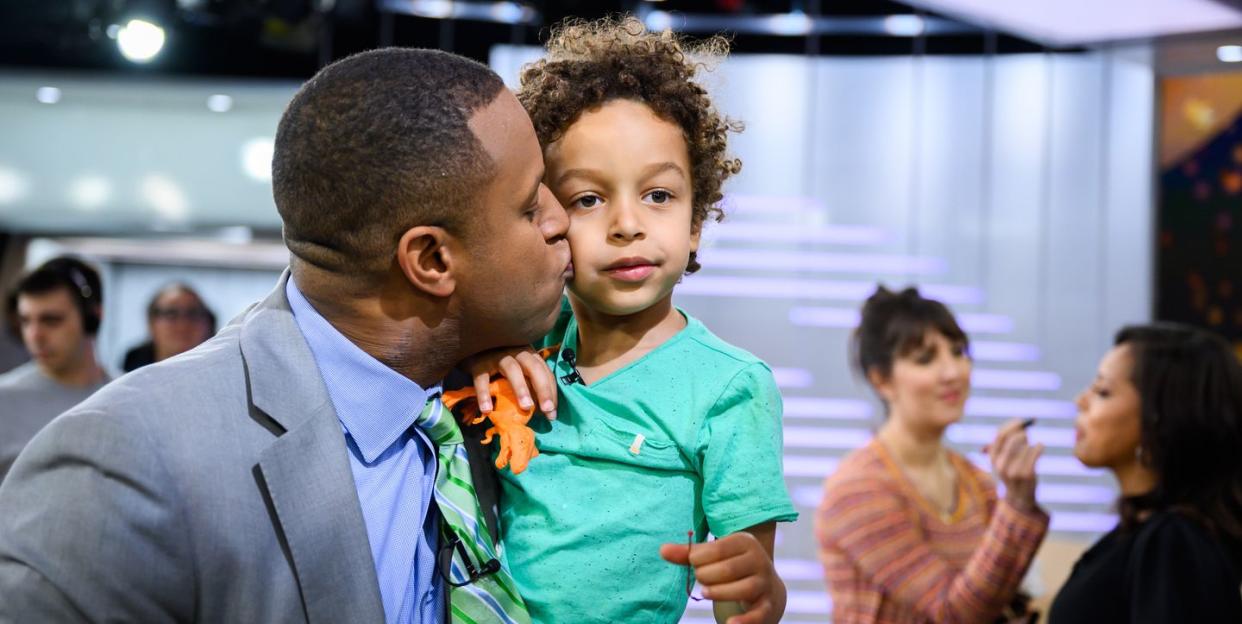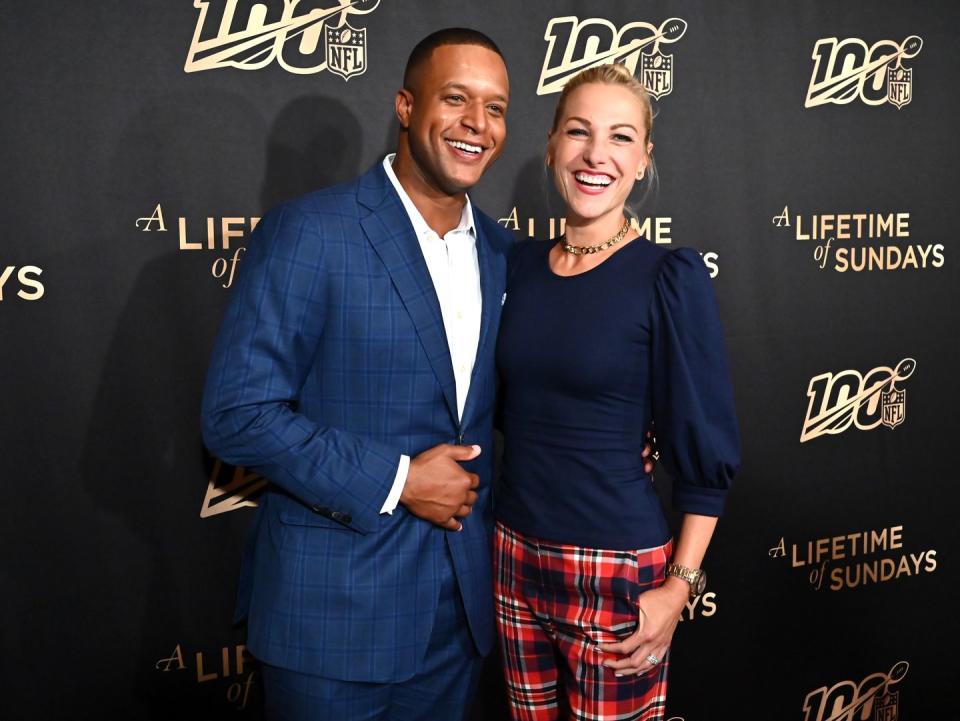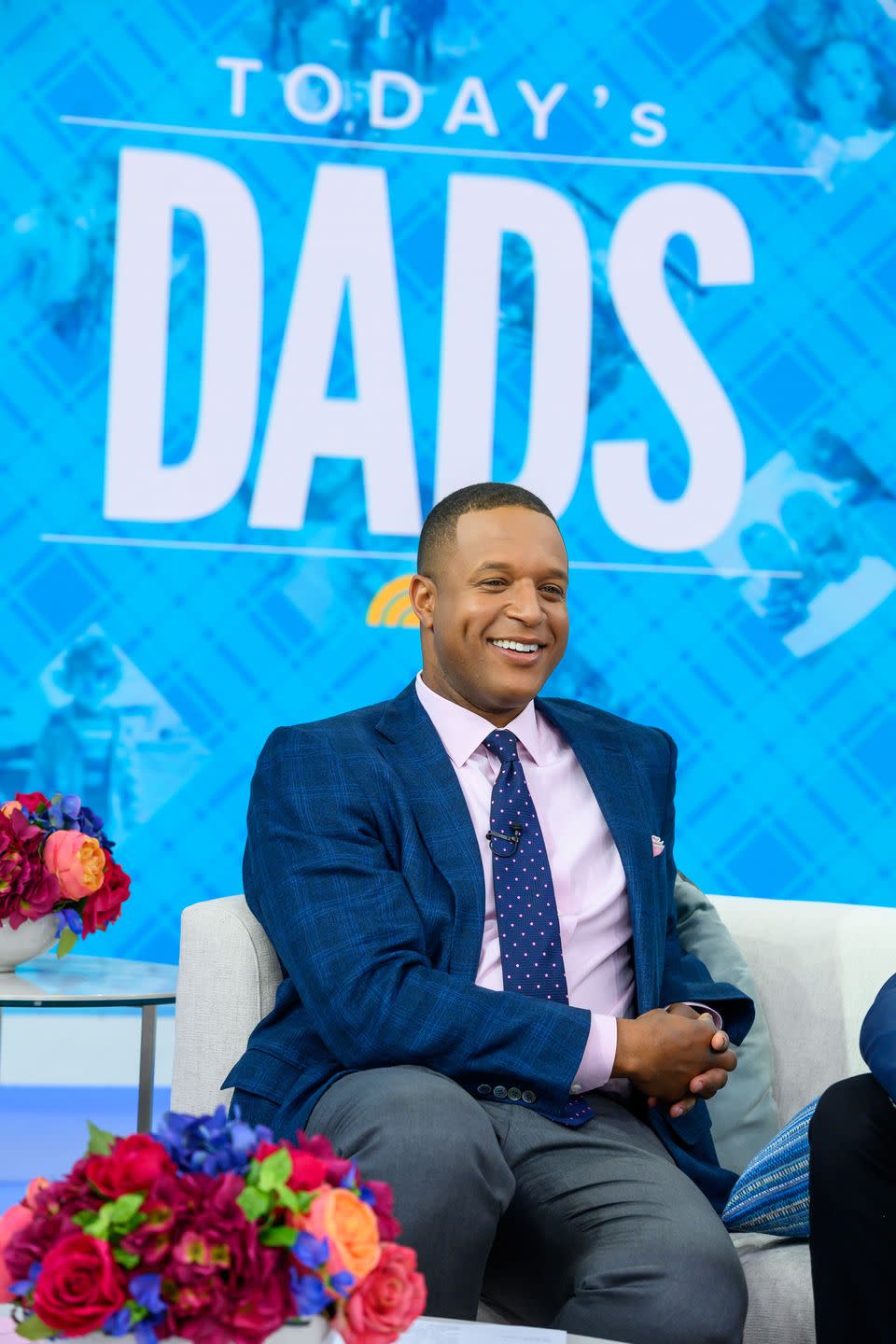I'm a Black Dad. I Fear for My Kids. But I Also Have Hope.

In 2013 and 2014, I was living a double life.
Professionally, I was reporting on the trial of George Zimmerman, who was charged with (but found not guilty of) murdering Trayvon Martin, an unarmed Black 17-year-old. I spent time in Ferguson, Missouri, where I spoke with the family of Michael Brown Jr., another unarmed teenager shot dead, this time by a white law-enforcement official. I watched the demonstrations that followed.
I experienced firsthand the pain, the confusion, and the rage that accompanied these acts of violence. My life was filled with death, doom, and destruction—all of a racial nature.
But then at home, personally, my wife and I were preparing for the arrival of our first child, a boy. My wife, Lindsay, is white. I’m Black. Barack Obama was president, and my wife and I were living in a post-racial America, we thought.
The fact that our son would be biracial wasn’t a chief concern. We had more conversations about how cool it was going to be to have a child in a new America. In looking back on that time, I now realize that perhaps I had been lulled into a sense of complacency.

My mother, Betty Jo, grew up in the 1960s. She lived in the projects. She sat in the front of the bus when sitting in the front of the bus was a statement. She knew “hard” racism. But she also did what she could to shield us.
She named me Craig and my brother Ryan. She made sure that we grew up in a diverse neighborhood and had friends of all colors. She raised us not to see color. I’m not blaming my mother for my inability to see “soft” racism, but consequently I may be doing the same thing with my children that my mother did with Ryan and me: shielding.
Today, my son is six, and we also have a daughter, who is three. I don’t know when it happens in terms of age, but they haven’t even questioned race yet. That’s remarkable. At what point in our lives do we decide to classify everyone? I know that it does happen, and there will come a day that the Band-Aid is off and there’s no putting it back on.
I’ve been covering the killing of George Floyd and its aftermath, and I’m still trying to reconcile my double life in 2020. I’ve always been good at compartmentalizing. I’ve always left the story at work. But what I did not fully appreciate until a couple years into fatherhood was that there’s a residual effect of uncovering certain kinds of stories that is changing how I parent as a Black father.

I am not an emotional man, but now I cry a lot more than I used to. I’ve had to fight and coach myself into pulling it together—sometimes before I go on the air, sometimes while I’m on the air.
My wife and I haven’t had a conversation with our son about race yet. Some of that is because we’re not sure what to say yet. We are still having these conversations—between ourselves and among our family—conversations about how it doesn’t matter how high-profile your job, what your ZIP code is, or whether you “yes ma’am” or “no sir.” The reality is that on some chance encounter with an officer where something goes wrong, you realize that there’s nothing you can do.
Right now my son and daughter are upstairs playing together with friends. I can hear them running around and having a great time. There’s peace in that innocence. As a parent in this moment—today—I feel like that’s the best I can offer them.
At some point I’ll have to talk to my son about how to deal with the fact that he will go from being a cute kid with great hair to being labeled as a threat in society.
I’ll have to talk to him about how to deal with circumstances he doesn’t have control over. I’ll have to talk to him about how he’s going to carry himself in a world that doesn’t always make sense.
But before I have this conversation with him, I’ll continue to have this conversation with myself.
You Might Also Like

